
What We Are Investigating?
Our firm is launching a comprehensive investigation into DX Exchange over allegations that it has been suppressing critical reviews and unfavorable Google search results by fraudulently misusing DMCA takedown notices. These actions, if proven, could constitute serious legal violations—including impersonation, fraud, and perjury.
We conducted comprehensive analyses of fraudulent copyright takedown requests, meritless legal complaints, and other unlawful efforts to suppress public access to critical information. Our reporting sheds light on the prevalence and modus operandi of a structured censorship network, often funded and used by criminal enterprises, oligarchs and criminal entities seeking to manipulate public perception and bypass AML checks conducted by financial organisations.
The fake DMCA notices in this investigation appears to have been strategically deployed to remove negative content from Google search results illegally. Based on this pattern, we have reasonable grounds to infer that DX Exchange - or an entity acting at its behest - is directly or indirectly complicit in this cyber crime.
In most such cases, such ops are executed by rogue, fly-by-night 'Online Reputation Management' agencies acting on behalf of their clients. If evidence establishes that the subject knowingly benefited from or facilitated this scam, it may be deemed an 'accomplice' or an 'accessory' to the crime.

What are they trying to censor
DX Exchange, a cryptocurrency trading platform launched in 2018, has faced significant scrutiny and allegations since its inception. These issues range from regulatory concerns to operational red flags, raising questions about the platform’s credibility and practices. Below is a summary of the major allegations and adverse news, along with an analysis of how these stories harm DX Exchange’s reputation and why the company might seek to suppress them, even through illicit means.
Major Allegations and Red Flags
Regulatory Concerns and Licensing Issues
DX Exchange has been criticized for operating in a regulatory gray area. The platform claimed to be licensed under the European Union’s MiFID II framework, but investigations revealed that its license was held by a third-party entity, not DX Exchange itself. This raised questions about the platform’s compliance with financial regulations and its ability to safeguard user funds.
Ties to Controversial Figures
DX Exchange has been linked to individuals with questionable backgrounds. Notably, its parent company, NFX Capital, has ties to figures involved in previous financial scandals. These associations have fueled suspicions about the platform’s legitimacy and intentions.
Security Vulnerabilities
In 2019, cybersecurity experts flagged significant vulnerabilities in DX Exchange’s infrastructure. Reports suggested that the platform’s systems were susceptible to hacking, putting user funds and data at risk. Such vulnerabilities undermine trust in the exchange’s ability to protect its users.
Tokenized Stocks Scandal
DX Exchange gained notoriety for offering tokenized versions of stocks like Apple and Tesla, claiming these were backed by real shares. However, investigations revealed that the platform lacked proper authorization to offer such products, leading to accusations of operating a “scam” or “Ponzi scheme.” This controversy severely damaged its reputation among investors and regulators.
Lack of Transparency
Critics have accused DX Exchange of being opaque about its ownership structure, funding sources, and operational practices. This lack of transparency has fueled distrust and speculation about the platform’s motives.
Operational Failures and User Complaints
Users have reported issues with withdrawals, poor customer support, and unexplained account freezes. These operational failures have led to accusations of mismanagement and potential insolvency.
Impact on Reputation
The allegations against DX Exchange paint a picture of a platform struggling with regulatory compliance, security, and transparency. The tokenized stocks scandal, in particular, has been a significant blow to its reputation, as it directly challenges the platform’s credibility and legitimacy. Regulatory concerns and ties to controversial figures further erode trust, making it difficult for DX Exchange to attract and retain users.
Why DX Exchange Might Want to Suppress These Stories
The adverse news and allegations against DX Exchange have the potential to destroy its business. Negative publicity can lead to regulatory crackdowns, loss of users, and difficulty securing partnerships or funding. In such a high-stakes environment, the company might feel compelled to remove damaging information from the public domain, even if it means resorting to cybercrime.
For instance, hacking or doxxing journalists and whistleblowers could silence critics and suppress unfavorable stories. Similarly, manipulating online content or engaging in disinformation campaigns could help the company control its narrative. While such actions are illegal and unethical, the perceived need for survival in a competitive and reputation-driven industry might drive DX Exchange to take extreme measures.
Conclusion
DX Exchange’s history is marred by allegations of regulatory non-compliance, security failures, and questionable practices. These issues have severely harmed its reputation, making it a target for scrutiny. The platform’s potential desperation to suppress damaging information highlights the lengths to which companies might go to protect their image, even at the cost of committing cybercrimes. As the cryptocurrency industry continues to evolve, the case of DX Exchange serves as a cautionary tale about the importance of transparency, accountability, and ethical conduct.
- https://lumendatabase.org/notices/43473433
- https://lumendatabase.org/notices/43215637
- https://lumendatabase.org/notices/43215332
- Jul 31, 2024
- Jul 21, 2024
- Jul 21, 2024
- Mozaro Media Corp.
- HQ Law & Co.
- SU Media International LLC
- https://neworleansgazette.org/?p=204
- https://vancouvertimesherald.com/2019/01/02/shady-past-of-dx-exchange-brought-to-the-surface/
- http://www.cryptonews.net/news/market/82465
Evidence Box
Evidence and relevant screenshots related to our investigation
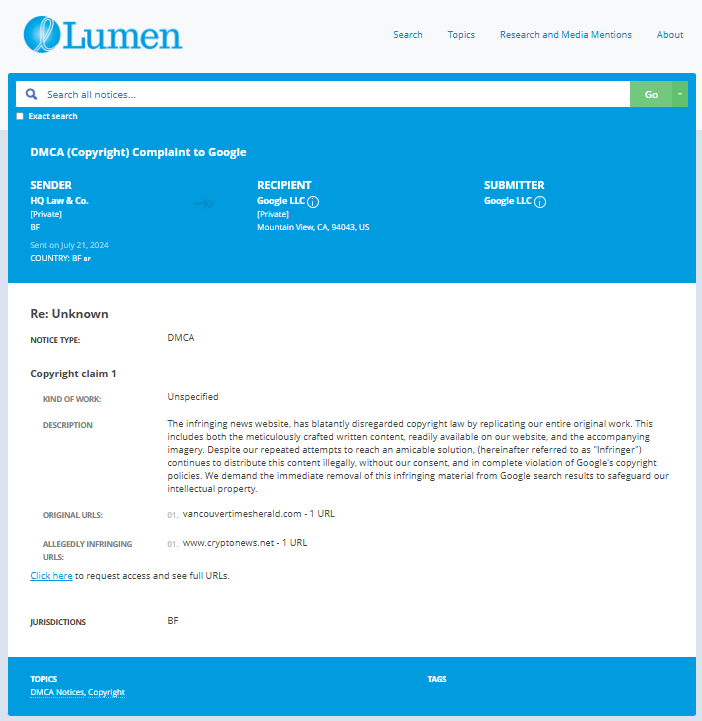
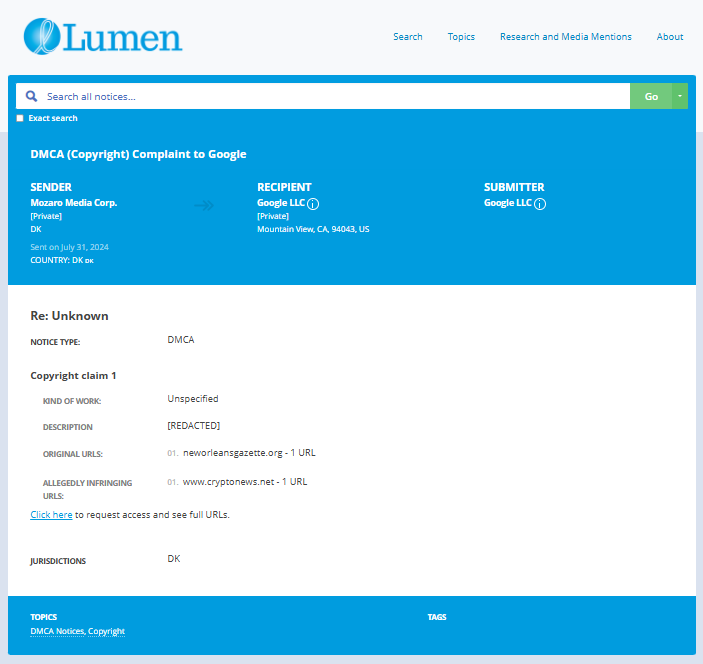
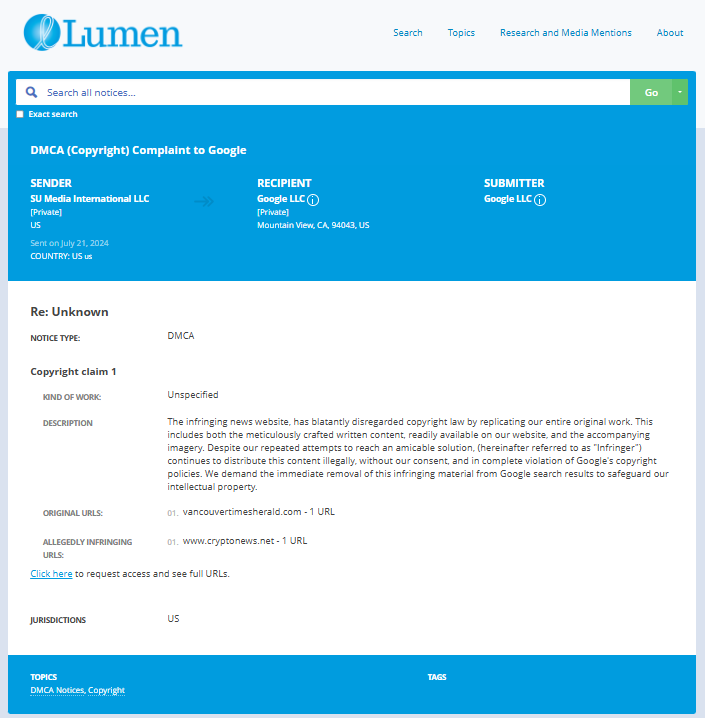
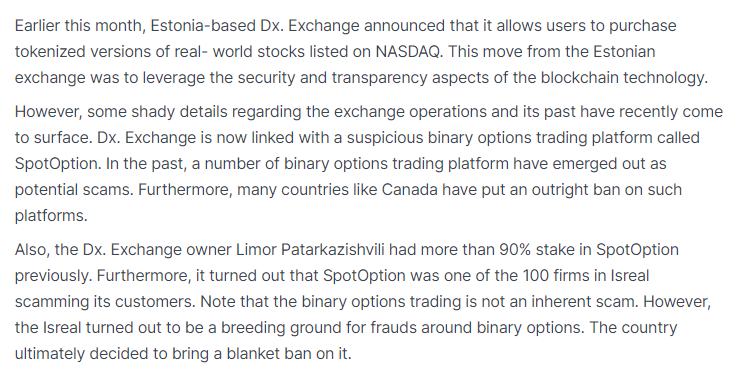
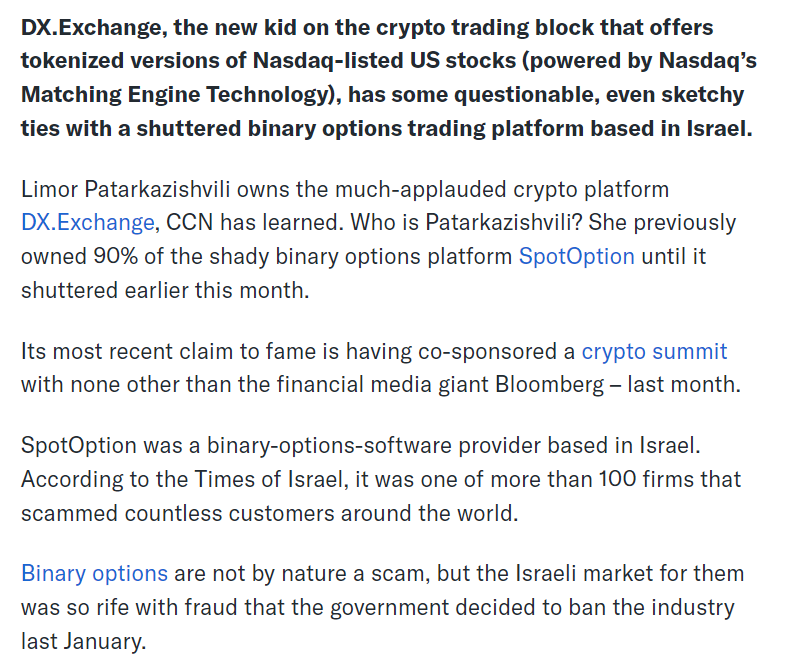
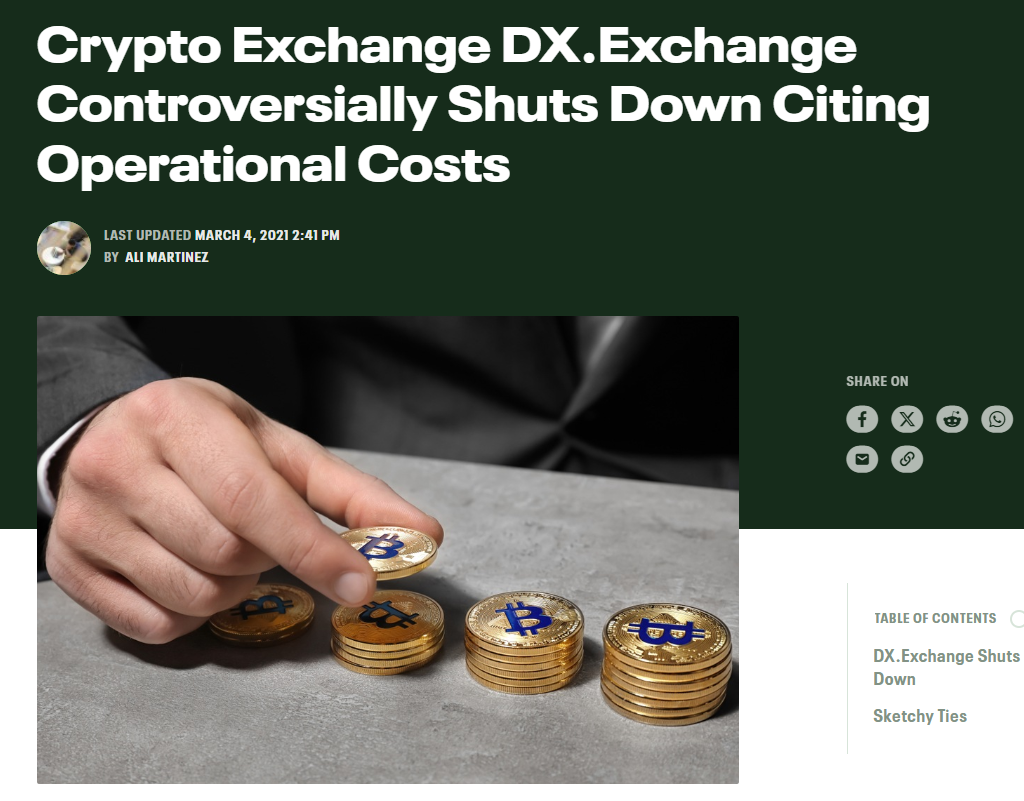

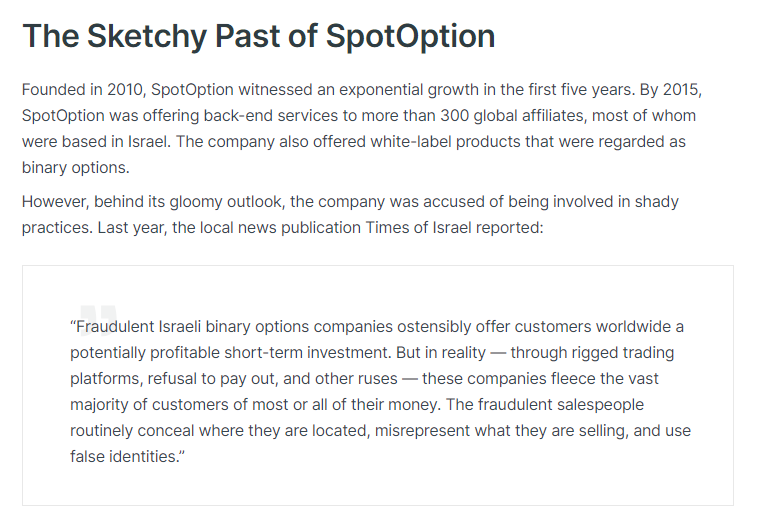
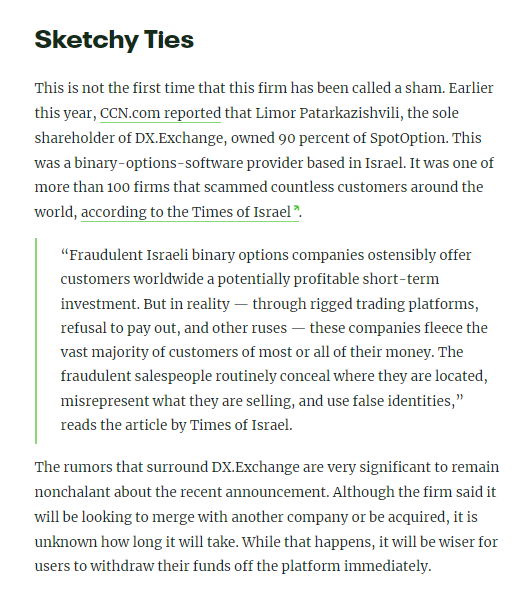

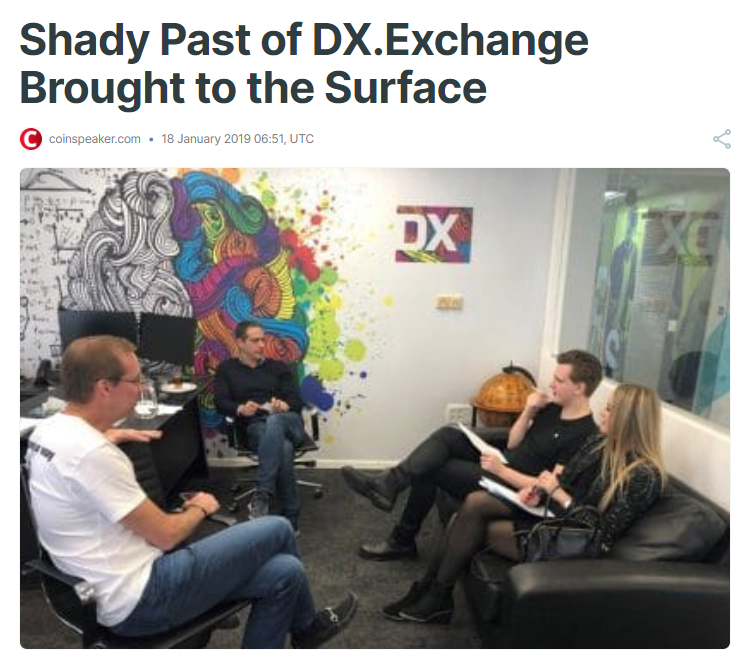
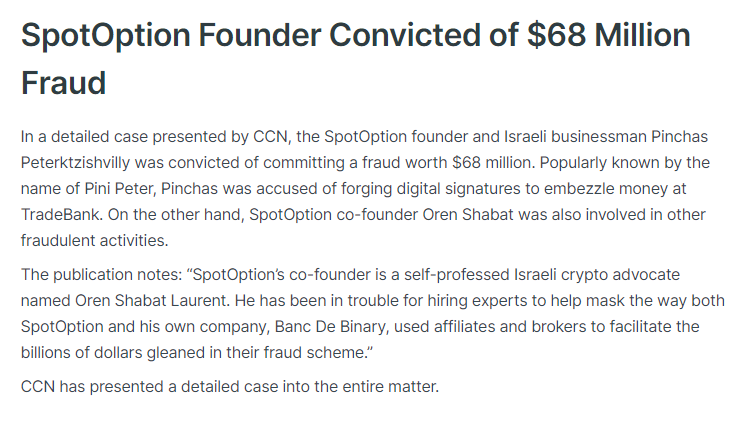
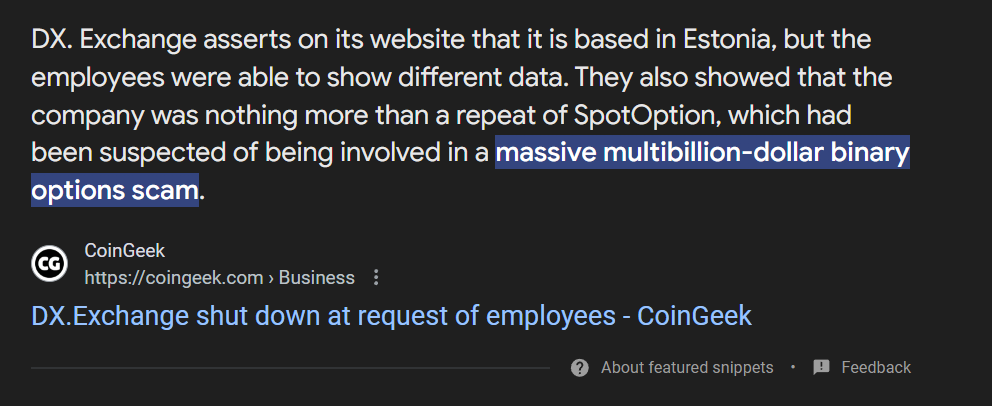
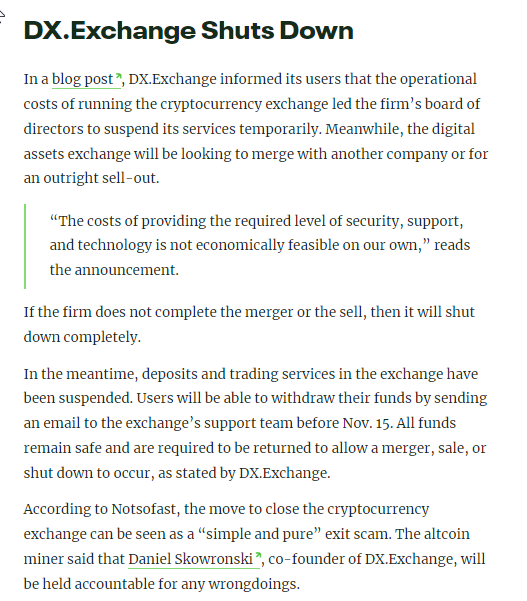
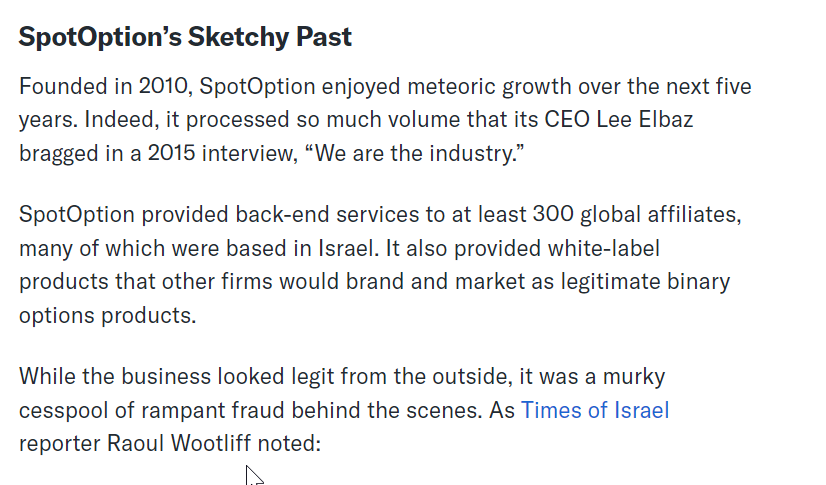
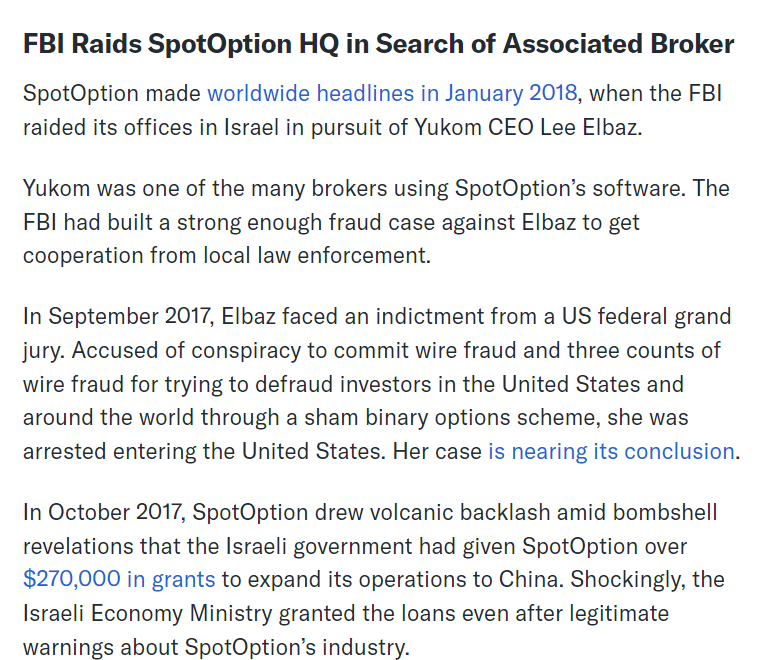




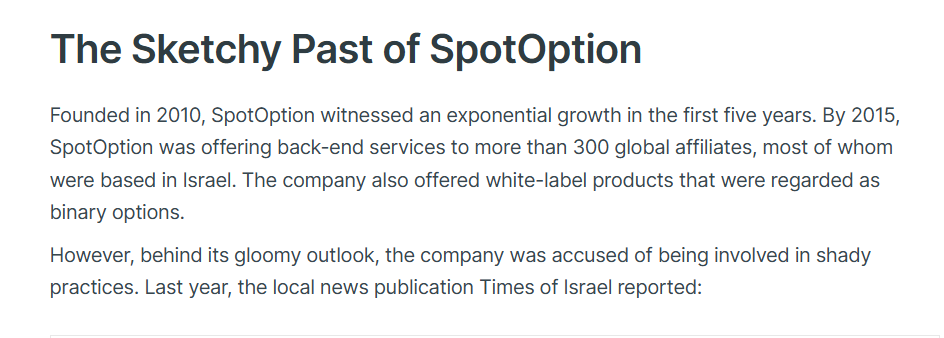
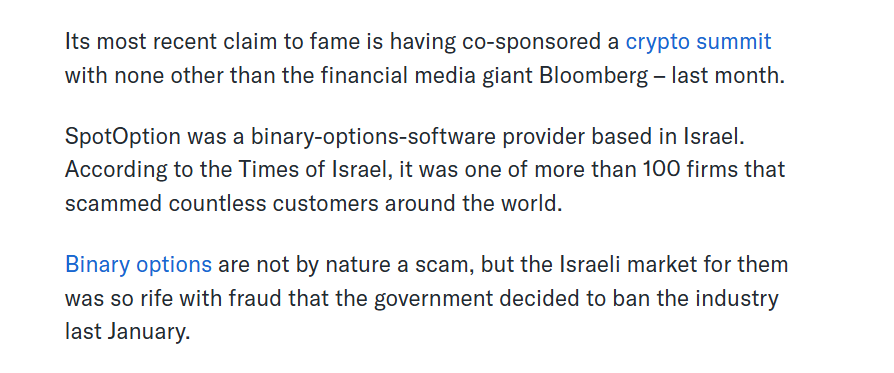
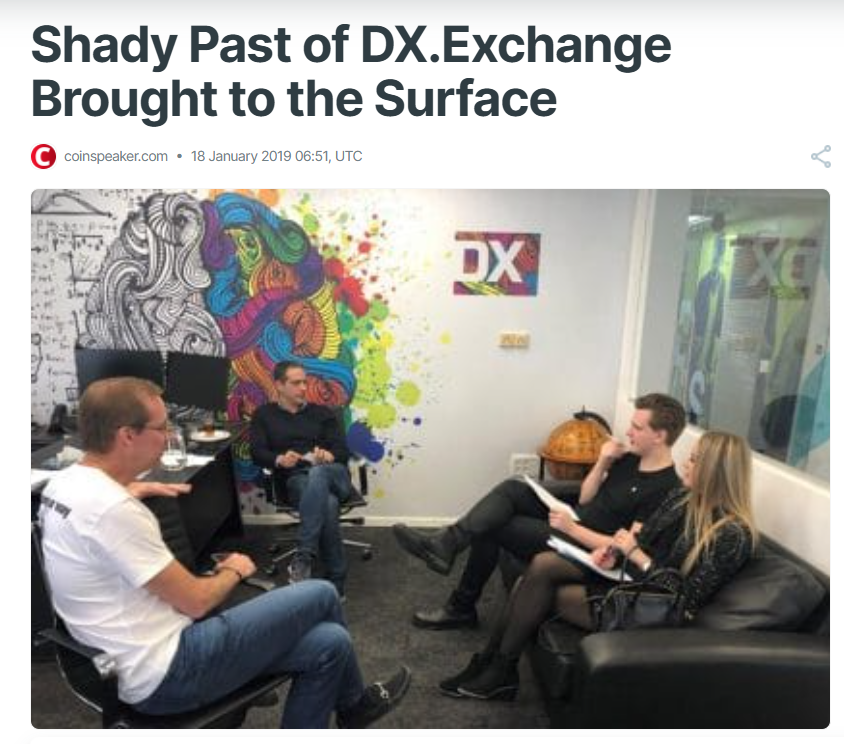
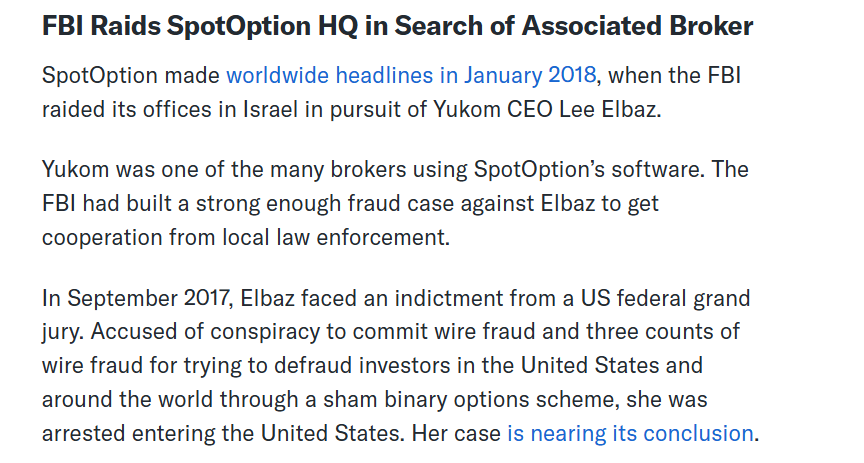
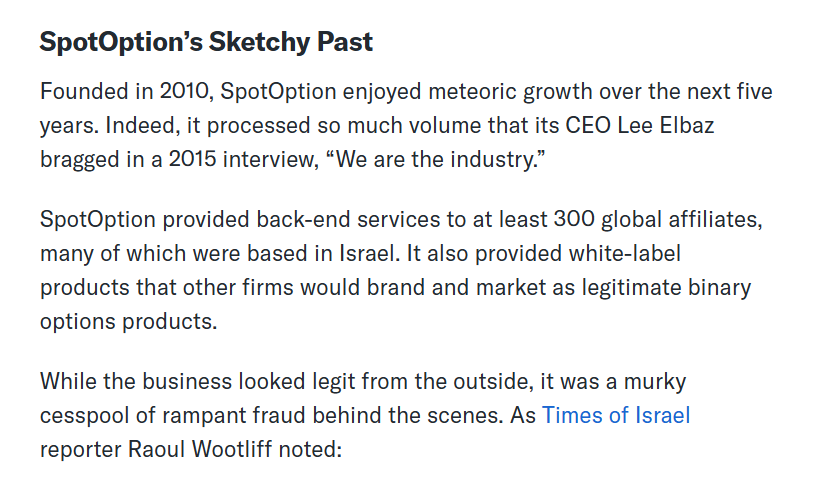
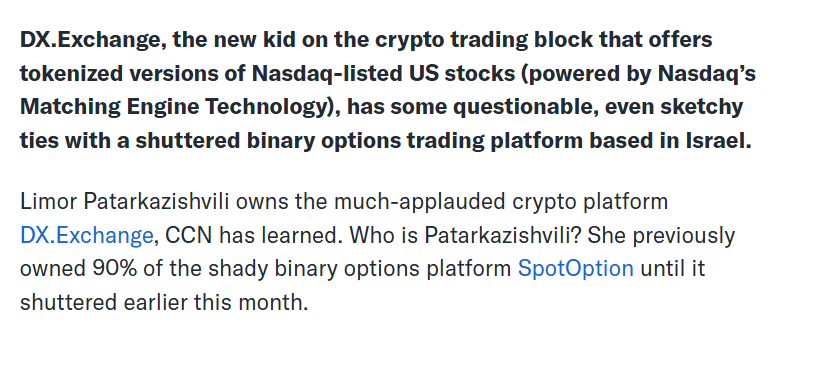

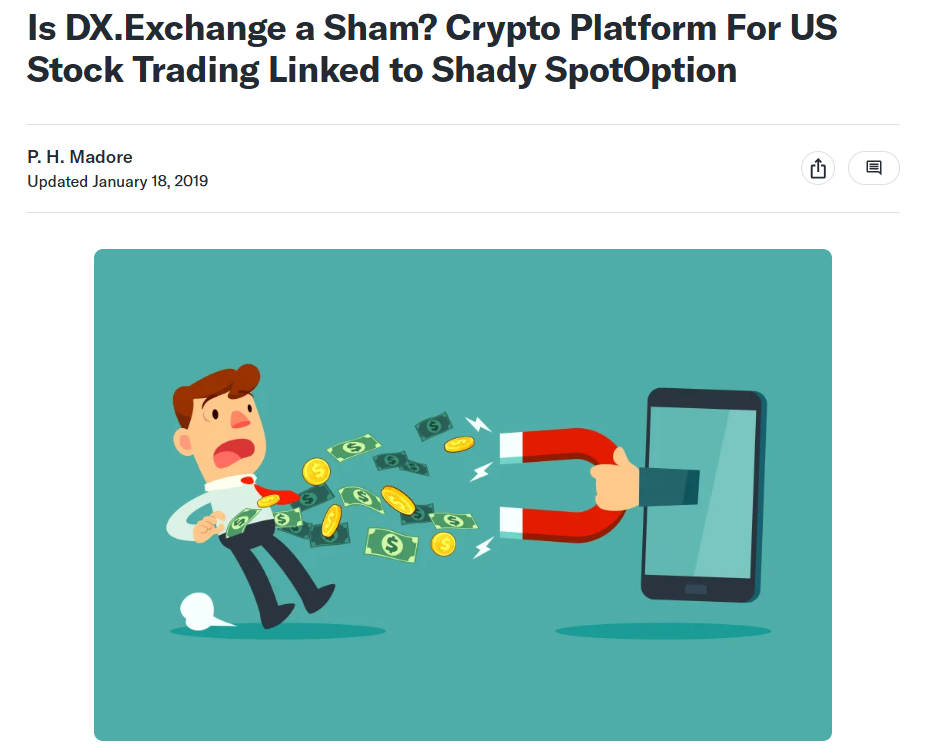
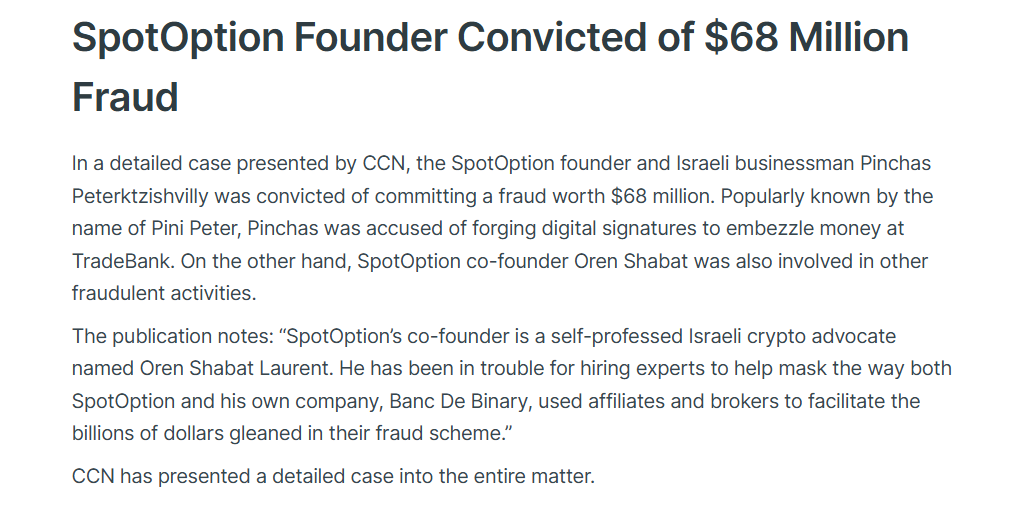
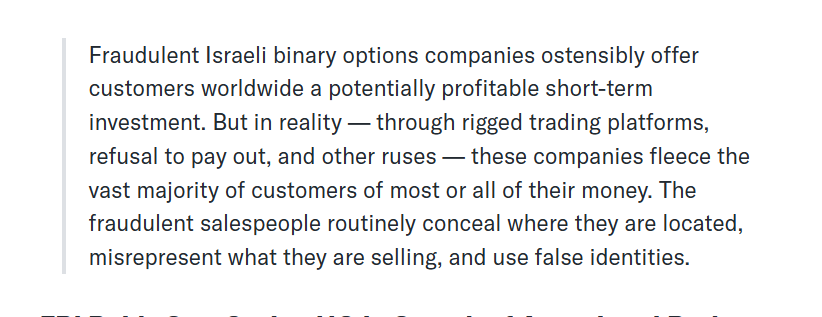
Targeted Content and Red Flags

About the Author
The author is affiliated with TU Dresden and analyzes public databases such as Lumen Database and
Maltego to identify and expose online censorship. In his personal capacity, he and his
team have been actively investigating and reporting on organized crime related
to fraudulent copyright takedown schemes.
Additionally, his team provides
advisory services to major law firms and is frequently consulted on matters
pertaining to intellectual property law.
Escalate This Case


Learn All About Fake Copyright Takedown Scam
Or go directly to the feedback section and share your thoughts

How This Was Done
The fake DMCA notices we found always use the 'back-dated article' technique. With this technique, the wrongful notice sender (or copier) creates a copy of a 'true original' article and back-dates it, creating a 'fake original' article (a copy of the true original) that, at first glance, appears to have been published before the true original

What Happens Next?
Based on the feedback, information, and requests received from all relevant parties, our team will formally notify the affected party of the alleged infringement. Following a thorough review, we will submit a counter-notice to reinstate any link that has been removed by Google, in accordance with applicable legal provisions. Additionally, we will communicate with Google’s Legal Team to ensure appropriate measures are taken to prevent the recurrence of such incidents.


You are Never Alone in Your Fight.
Generate public support against the ones who wronged you!
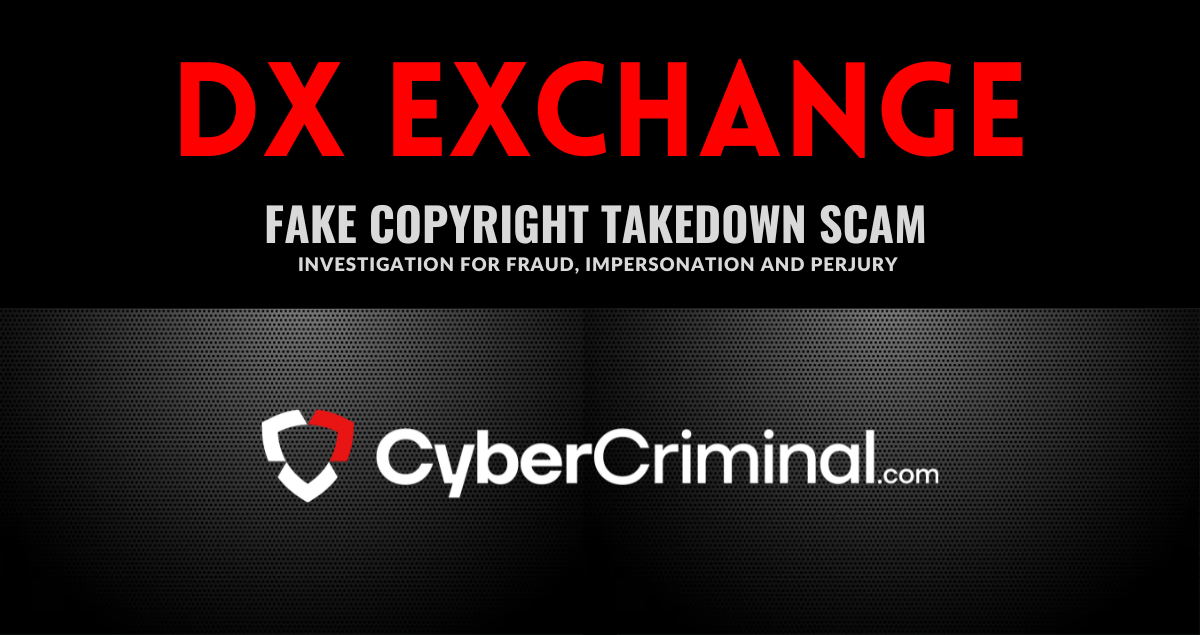



Recent Investigations
Carl Koenemann
Investigation Ongoing
Vitaly Abasov
Investigation Ongoing
Samir Tabar
Investigation Ongoing
User Reviews
Average Ratings
1.4
Based on 7 ratings
by: Xena Blythe
I can’t believe how shady this whole thing is. DX Exchange really tried to cover up the truth with fake takedown notices. Not surprised tho, just another sketchy crypto platform in the wild.
by: Mei Tanaka
“We’re licensed... sort of, through someone else, in a different country.” Not exactly the trust signal investors are looking for.
by: Jonas Müller
If your stock tokens are fake, your customer support is silent, and your founders are shady—yeah, you’ve got a problem.
by: Neha Verma
DX Exchange feels less like a trading platform and more like a high-stakes game of “Guess Who Gets Scammed Next?”
by: Wynn Melody
What’s worse is how quiet they went after taking people’s money. No transparency, no explanations—just silence.
by: Talia Sonnet
It’s terrifying how many people lost huge amounts of money here. Regulation needs to catch up to stop disasters like this.
by: Sage Canvas
They overpromised, underdelivered, and vanished just when things got rough. DX Exchange was nothing but vaporware. 💨
by: Rune Poet
Their entire operation feels like a front. The tech was unstable, the customer support nonexistent, and the withdrawal process sketchy as hell.
by: Quill Story
DX Exchange came in like a flashy crypto savior, and left like a thief in the night. Investors were left empty-handed and angry.
by: Charlie Taylor
DX Exchange is a walking red flag. The whole tokenized stocks thing? Fake. Their 'security' is a joke, and good luck getting your $$ back if they freeze your account. Honestly, feels like a scam dressed as a crypto platform....
by: Jacob Morgan
DX Exchange? More like DX Scamchange. 💀
by: Jack Thomas
DX Exchange’s lack of transparency and regulatory compliance is deeply concerning.
by: Harry Evans
DX Exchange’s association with controversial figures and its opaque ownership structure severely undermine trust. The platform’s tokenized stocks scandal, coupled with poor customer support and withdrawal issues, paints a picture of mismanagement. Such practices raise red flags about the company’s...
by: Isaiah Powell
This company gives me bad vibes. They promise a lot but deliver so little. I think if they’re just another scam in the crypto world.to bad.
by: Alice Russell
I don’t get why people still use DX Exchange. There are so many red flags—like, where’s the transparency? Feels like they’re hiding something big.
by: Brooklyn Ward
DX Exchange seems so sketchy. No clear info, no real customer support, and too many complaints online. Why would anyone risk their money with them? It’s just not worth it.
Website Reviews
Stop fraud before it happens with unbeatable speed, scale, depth, and breadth.
Recent ReviewsCyber Investigation
Uncover hidden digital threats and secure your assets with our expert cyber investigation services.
Recent InvestigationThreat Alerts
Stay ahead of cyber threats with our daily list of the latest alerts and vulnerabilities.
Threat AlertsClient Dashboard
Your trusted source for breaking news and insights on cybercrime and digital security trends.
Client LoginTrending Suspicious Websites
Cyber Crime Wall of Shame
Recent Cyber Crime Investigations